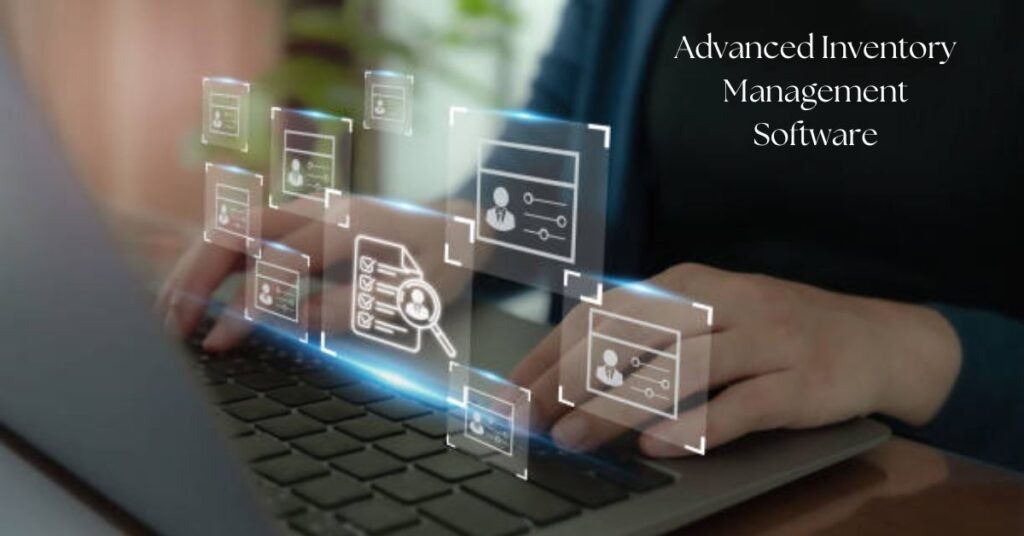6 Tech Innovations Transforming E-Commerce Fulfillment
Tech innovations are reshaping the landscape of e-commerce fulfillment, enhancing efficiency, speed, and customer satisfaction. Automation has emerged as a game-changer in the logistics industry, allowing businesses to streamline their operations and minimize human error. From automated warehouses equipped with robotic systems to advanced inventory management software, these technologies enable companies to process orders faster and more accurately. As e-commerce continues to grow, businesses are increasingly adopting these innovations to remain competitive and meet the rising consumer expectations for rapid delivery and seamless service.
In this evolving environment, data analytics plays a pivotal role in optimizing fulfillment strategies. By leveraging insights from consumer behavior and market trends, businesses can make informed decisions about inventory levels, shipping methods, and distribution channels. This data-driven approach not only enhances operational efficiency but also allows companies to anticipate customer needs and tailor their services accordingly. Additionally, innovations like drone delivery and smart packaging are set to revolutionize the way products reach consumers, offering new possibilities for speed and sustainability in the e-commerce sector.
Revolutionary Technologies Shaping the Future of E-Commerce Fulfillment
In today’s fast-paced digital marketplace, the demand for efficient and effective e-commerce fulfillment processes has never been higher. As businesses strive to meet customer expectations for speed and reliability, innovative technologies are stepping up to the challenge. This article delves into six groundbreaking tech innovations that are transforming the landscape of e-commerce fulfillment, from automation in warehousing to the integration of blockchain technology. Each innovation not only enhances operational efficiency but also contributes to improved customer satisfaction, positioning companies for success in a competitive environment.
Automation in Warehousing
Automation in warehousing is revolutionizing the way e-commerce companies manage their inventory and fulfill orders. By employing advanced robotics and automated systems, businesses can streamline their operations, reduce labor costs, and minimize human error. Automation allows for quicker processing times, enabling companies to handle larger volumes of orders without sacrificing accuracy.
- Increased Efficiency: Automated systems can operate around the clock, significantly speeding up the order fulfillment process.
- Cost Reduction: By reducing the need for manual labor, companies can cut operational costs and reallocate resources to other areas.
- Space Optimization: Automated systems can maximize storage space within warehouses, allowing for better inventory management.
Robotic Systems for Order Processing
Robotic systems are at the forefront of order processing innovation in e-commerce fulfillment. These advanced robots can pick, pack, and sort items with incredible speed and precision, dramatically improving the efficiency of fulfillment centers.
Benefits of Robotic Automation
The integration of robotic systems offers numerous advantages:
- Enhanced Speed: Robots can process orders much faster than human workers, leading to quicker delivery times.
- Improved Accuracy: Robots reduce the likelihood of errors in order picking, ensuring customers receive the correct items.
- Scalability: Robotic systems can easily scale operations up or down based on demand fluctuations.
Case Studies of Successful Implementations
Many e-commerce giants have successfully implemented robotic systems, resulting in significant improvements in their fulfillment processes. For instance, companies like Amazon have deployed hundreds of thousands of robots in their warehouses, leading to enhanced order accuracy and faster delivery times.
Advanced Inventory Management Software
Advanced inventory management software is essential in today’s e-commerce landscape. This technology enables businesses to track stock levels in real-time, manage reorders, and forecast future inventory needs based on sales trends.

Data Analytics for Demand Forecasting
Data analytics plays a crucial role in demand forecasting, allowing e-commerce businesses to anticipate customer needs and adjust their inventory accordingly. By analyzing historical sales data, companies can make informed predictions about future demand, ensuring they are well-prepared to meet customer expectations.
Understanding Consumer Behavior Through Data
By leveraging analytics, companies can gain insights into consumer behavior, identifying patterns and preferences that influence purchasing decisions. This understanding helps businesses tailor their inventory and marketing strategies to better align with customer expectations.
Optimizing Stock Levels and Reducing Waste
Effective demand forecasting allows companies to optimize stock levels, minimizing excess inventory and reducing waste. This not only enhances profitability but also contributes to sustainability efforts by decreasing the environmental impact of overproduction.
Drone Delivery Solutions
Drone delivery technology is quickly gaining traction in the e-commerce sector, offering a promising solution to the challenges of last-mile delivery. Drones can navigate urban environments efficiently, delivering packages directly to customers’ doorsteps in a fraction of the time it takes traditional delivery methods.
Impact on Delivery Speed
The introduction of drones into the delivery process has the potential to significantly enhance delivery speeds. With the ability to bypass traffic and reach remote locations, drones can ensure that customers receive their orders faster than ever before.

Regulatory Challenges and Solutions
Despite the promising advantages, drone delivery faces regulatory challenges that must be addressed for widespread adoption. Companies are actively working with regulatory bodies to establish safe operational guidelines that ensure public safety while enabling efficient delivery solutions.
Future of Drone Technology in Logistics
The future of drone technology in logistics looks bright, with ongoing advancements aimed at improving safety, efficiency, and reliability. As technology evolves, we can expect to see drones playing a more prominent role in the e-commerce fulfillment landscape.
Smart Packaging Innovations
Smart packaging innovations are transforming how e-commerce companies approach product packaging. These advancements not only enhance the unboxing experience for customers but also contribute to improved sustainability.
Sustainability in E-Commerce Fulfillment
Sustainability has become a critical focus for e-commerce businesses, with many seeking to minimize their environmental impact through eco-friendly practices. Smart packaging plays a significant role in this effort, utilizing materials that are recyclable or biodegradable.
Eco-Friendly Packaging Materials
Companies are increasingly turning to eco-friendly packaging materials that reduce waste and carbon emissions. By opting for sustainable materials, businesses can appeal to environmentally-conscious consumers while also contributing to a greener planet.
Reducing Carbon Footprint in Delivery
In addition to smart packaging, e-commerce companies are exploring ways to reduce their carbon footprint during delivery. This includes optimizing logistics routes, leveraging electric vehicles, and adopting carbon offset programs to mitigate their environmental impact.
Last-Mile Delivery Enhancements
Last-mile delivery is a crucial component of the e-commerce fulfillment process, often determining customer satisfaction. Enhancements in this area are essential for meeting the growing expectations of consumers for fast and reliable service.
Leveraging Technology for Efficiency
By leveraging technology, e-commerce businesses can optimize their last-mile delivery processes. This includes utilizing delivery management software that streamlines logistics operations and enhances communication with customers.
Utilizing Delivery Management Software
Delivery management software enables companies to track shipments in real-time, providing customers with accurate delivery updates. This transparency builds trust and improves the overall customer experience.
Customer Experience in Last-Mile Delivery
Enhancing the customer experience in last-mile delivery is vital for e-commerce success. Companies are exploring options such as flexible delivery windows and convenient pickup locations to ensure customer satisfaction.
Integration of AI in Logistics
The integration of artificial intelligence (AI) into logistics is reshaping e-commerce fulfillment. AI can analyze vast amounts of data to improve decision-making processes, optimize routes, and enhance operational efficiency.
Predictive Analytics for Supply Chain Management
Predictive analytics plays a pivotal role in supply chain management, allowing businesses to anticipate potential disruptions and proactively address them. By analyzing patterns and trends, companies can make informed decisions that enhance their fulfillment processes.
Enhancing Decision-Making Processes
AI-driven insights enable companies to enhance their decision-making processes, leading to more strategic planning and resource allocation. This proactive approach helps businesses stay ahead of the competition.
Real-Time Tracking and Monitoring
Real-time tracking and monitoring powered by AI provide businesses with valuable insights into their logistics operations. This technology allows companies to identify inefficiencies, improve response times, and ultimately enhance the customer experience.
Blockchain for Transparency
Blockchain technology is emerging as a powerful tool for enhancing transparency in e-commerce fulfillment. By creating an immutable record of transactions, blockchain provides businesses with a secure method for tracking products throughout the supply chain.
Improving Traceability in Fulfillment
With blockchain, companies can improve traceability in their fulfillment processes, ensuring that products can be tracked from manufacturer to consumer. This transparency builds trust with customers and enhances brand credibility.
Benefits of Blockchain Technology
The benefits of blockchain technology in e-commerce fulfillment are numerous:
- Enhanced Security: Blockchain’s decentralized nature reduces the risk of data breaches and fraud.
- Improved Efficiency: Streamlined processes reduce delays and minimize costs associated with traditional record-keeping.
- Greater Accountability: Businesses can hold parties accountable for their roles in the supply chain, fostering trust.
Challenges in Adoption Across Industries
Despite its advantages, the adoption of blockchain technology faces challenges, including regulatory hurdles and the need for industry-wide collaboration. Overcoming these challenges is essential for realizing the full potential of blockchain in e-commerce fulfillment.
Frequently Asked Questions
This section addresses common inquiries regarding tech innovations in e-commerce fulfillment. It aims to provide clarity on how automation, data analytics, and new delivery methods are transforming the logistics landscape, ultimately enhancing efficiency and customer satisfaction.
What role does automation play in e-commerce fulfillment?
Automation significantly improves operational efficiency by reducing human error and speeding up processes. Automated warehouses utilize robotic systems to handle inventory, allowing businesses to fulfill orders faster. This technology not only streamlines operations but also enhances accuracy, which is crucial as e-commerce demand continues to rise.
How can data analytics optimize fulfillment strategies?
Data analytics plays a key role in understanding consumer behavior and market trends. By analyzing this data, businesses can make informed decisions regarding inventory management, shipping methods, and distribution channels. This approach helps companies anticipate customer needs, improving service delivery and operational efficiency in the process.
What is the impact of drone delivery on e-commerce?
Drone delivery is revolutionizing logistics by offering faster and more efficient shipping options. This innovation allows for quicker product deliveries, catering to consumers’ expectations for speed. Additionally, drones can reduce traffic congestion and carbon emissions, contributing to a more sustainable e-commerce ecosystem.
How does smart packaging enhance the fulfillment process?
Smart packaging incorporates technology to monitor product conditions during transit. This innovation provides real-time data on temperature, humidity, and location, ensuring products arrive in optimal condition. By improving the reliability of deliveries, smart packaging enhances customer satisfaction and reduces the likelihood of returns.
What challenges do businesses face with tech innovations in fulfillment?
While tech innovations offer numerous benefits, businesses may encounter challenges such as high implementation costs, the need for staff training, and integration with existing systems. Additionally, maintaining cybersecurity in automated processes is crucial to protect sensitive data and ensure smooth operations in the competitive e-commerce landscape.







